Rewriting History: City Council Calls the Future of Georgetown’s HARC into Question
Share
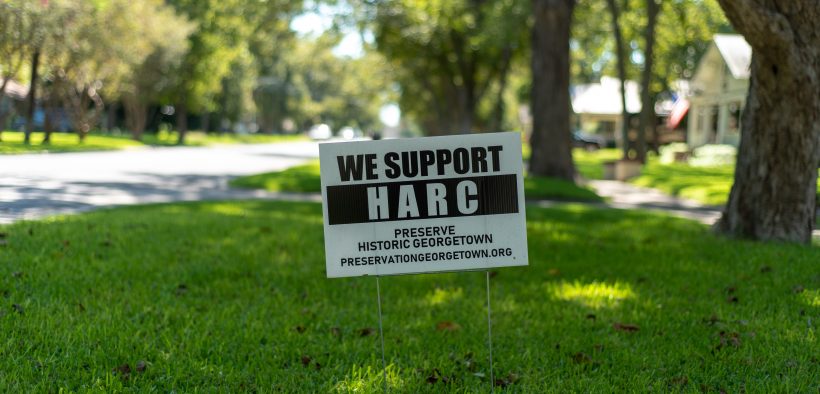
GEORGETOWN, TX–In a City Council meeting on August 14th, City Council Member Kevin Pitts made a proposition that quickly stirred up controversy. His proposition was to limit the power of the Historic and Architectural Review Commission (HARC) in Georgetown, move its power to Planning and Zoning, and give ultimate architectural decision making power to the City Council. During the meeting, the proposition was amended to keep HARC on instead of Planning and Zoning, but only in an advisory capacity. City Council would still have decision making power.
In the meeting, Councilman Pitts argued that it takes too long for HARC to grant the certificate of appropriateness to incoming businesses. “A faster turnaround on applications” would help the process and encourage new business, said Pitts. He also intimated that he doesn’t believe HARC is a diverse body and does not always vote objectively. Additionally, he indicated that a HARC decision should be made with a simple majority vote rather than the five out of seven votes currently required by HARC.
HARC is a body of the city government created to preserve the historical aspects of structure exteriors in Historic Georgetown. In addition to the downtown square and surrounding businesses, this includes all homes in the Historic District.
When businesses or homeowners want to make changes to the exterior of their building or new businesses want to build in the Historic District, they must go through HARC to get their plans approved and receive a certificate of appropriateness.
When applicants are denied by HARC for code noncompliance, HARC provides suggestions and applicants are encouraged to revise their plans and reapply. If they feel HARC’s decision is unfair, they have the option of appealing their case to City Council who can approve or deny their proposal. Since HARC’s inception, only three applicants have appealed their case to City Council, one of which was the Wish Well House during the August 14th meeting.
In the most recent appeal, new owners of the Wish Well House, sitting on S Main Street and built circa 1922, presented several different plans to turn the historic home into an event venue holding up to 350 people. HARC previously denied their proposal on two occasions for multiple code noncompliance.
Despite failing to meet the appeal criteria, failing to comply with multiple codes, the confusion of showing multiple building plans, and the many Georgetown residents voicing their objections at the meeting, City Council voted 5-2 in favor of the project. Citizen concerns regarding the plans for a nine-foot brick wall surrounding the house, demolition of a porch, a 4,681 square foot additional structure, and limited parking options went unanswered.
Many members of the community are concerned that some City Council members made their decision on the Wish Well House prior to the meeting, behind closed doors and under unidentified influences.
During the chance for Georgetown residents to speak on Kevin Pitt’s HARC proposal, one community member referenced the Wish Well House vote indicating that, “As a spectator out here sitting in the audience, it looked to me like you guys voted for a plan that you didn’t even have in front of you.” Many citizens pointed out that the Wish Well House issue “is further evidence why these decisions should not be routinely assigned to the City Council.”
Moving HARC’s decision making power to City Council worries a few members of council as well, including Rachael Jonrowe, the District 6 Councilmember. Jonrowe’s district encompasses most of the commercial Historic District, many private residents, the Georgetown High School area, and Southwestern University. While she is very familiar with HARC and their bylaws, she comments that “most of my fellow council members don’t know the design guidelines as well as I do. They don’t know as well as the HARC members do.”
Jonrowe was very vocal, and in the minority, at that meeting on August 14th. She’s worried that the decision-making process for certificates of appropriateness will become skewed. “When I feel like there is a political agenda at play, that it’s less about improving the process than gaming the process for certain folks, then I’m going to stand up and I’m going to fight,” she said.
HARC is, in fact, comprised of a group of diverse people with great qualifications. Two historians and multiple Old Town downtown business- and property-owners are some of the titles that those on HARC hold.
HARC members go through extensive training and are well versed in the bylaws. Should Pitts’ proposal move forward, some are worried about the process for educating City Council so that they can accurately issue certificates of appropriateness.
Jonrowe stated, “They’re not educated on the design guidelines. If we were trying to train/educate them, how long would that take before they could be considered up to speed?”
It seems to many that the future of Georgetown is at stake. “Our history and our architectural preservation, years of work will be lost…and that would be a true shame,” said Melissa Boyd, Vice President of Preservation Georgetown, a nonprofit organization devoted to preserving and promoting Georgetown’s heritage.
As an example, a citizen that spoke at the City Council meeting recommended to “just drive down into Austin and drive through those neighborhoods and look what they’ve done with McMansions in Hyde Park.”
Giant houses, condos, and apartment buildings seemingly out of place are not a rarity in most large cities. The extraction of the old to make room for the new is common in all developing areas. HARC isn’t trying to stop growth, just to regulate it and protect our current structures. “I feel like we have a level of responsibility to be able to preserve some of the integrity [of Georgetown]. Preserving the integrity doesn’t mean that no new development occurs” said Planning Director Sofia Nelson.
A council workshop and a city survey will be held before a vote on HARC’s future.
Preserving historic aspects of Georgetown is essential, not only to visitors who spend the weekend here walking the square, finding unique items in our stores, and grabbing a bite to eat at our restaurants. It’s also important to the folks that live here: People who grew up and stayed to watch the town blossom, who moved here because of the undeniable charm and sense of community–even Southwestern students, whose college experience is only enriched by the preserved history of the school and the city it’s in.
After all, Southwestern is the oldest institution of higher learning in Texas. Without preservation of historical structures, we wouldn’t have buildings like Cullen, Mood-Bridwell, or Olin to reflect back on and help us remember and appreciate the past. Like Southwestern, Georgetown has preserved its history but it hasn’t resisted change. In fact, it welcomes it.
As we learn and grow collectively we change the way we treat ourselves and the people and places around us, but we couldn’t have gotten where we are now without the past to teach us what ideals to uphold and what ideals to let go. When we consider our heritage, we’re only thinking about our past, but our present and our future as well, because they are inseparable. When you destroy old establishments for new ones, you’re rewriting history.
Take the city of Georgetown survey regarding the future of H.A.R.C.
There will be an open house meeting about historic resources on Oct. 29 at the Council Chamber and Court Building, 101 E. Seventh St. If you have more ideas or suggestions about historic resources that you would like to share with the City, you can sign up for a 15-minute time slot during office hours from 4:30 to 7 p.m. on Oct. 24. To sign up, send a message to historic@georgetown.org

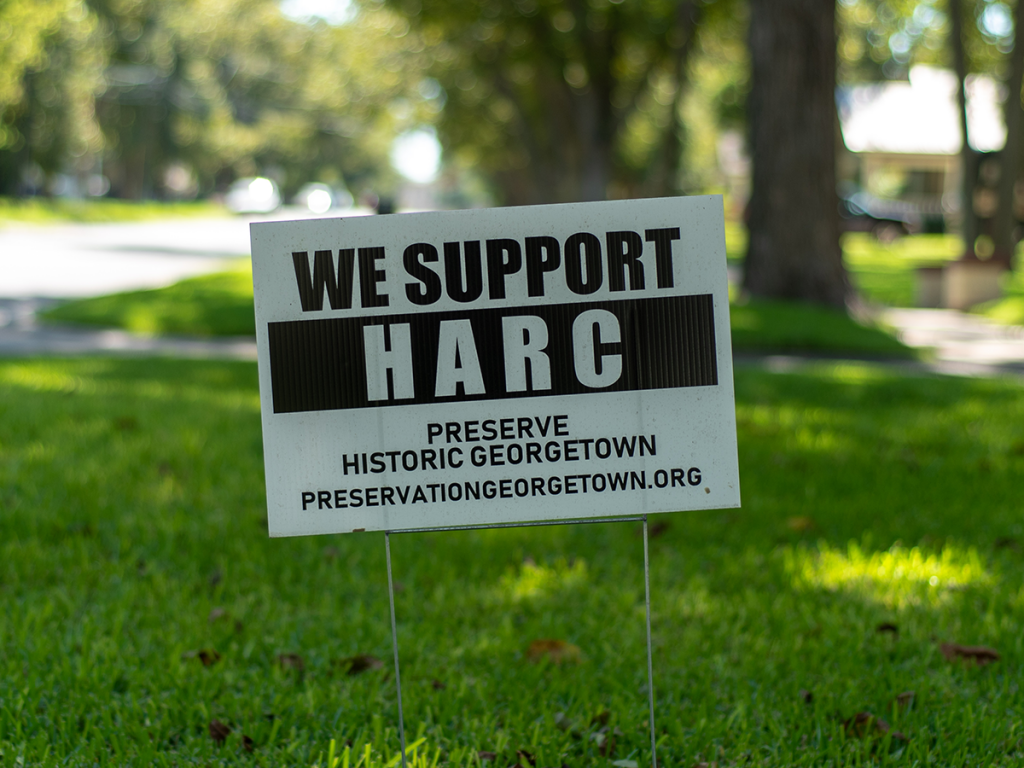
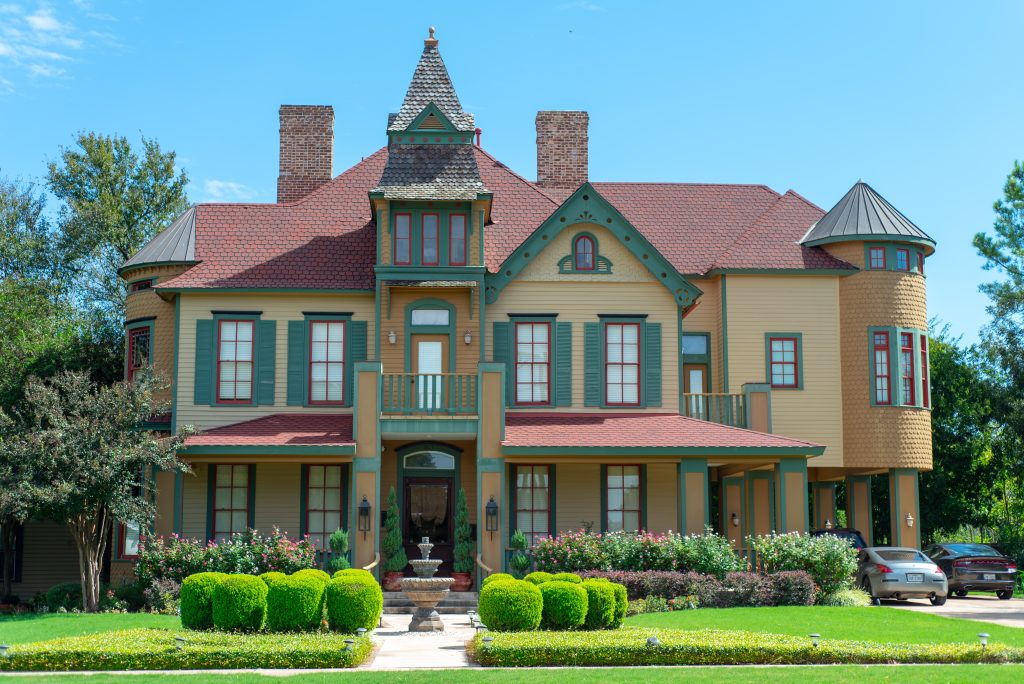
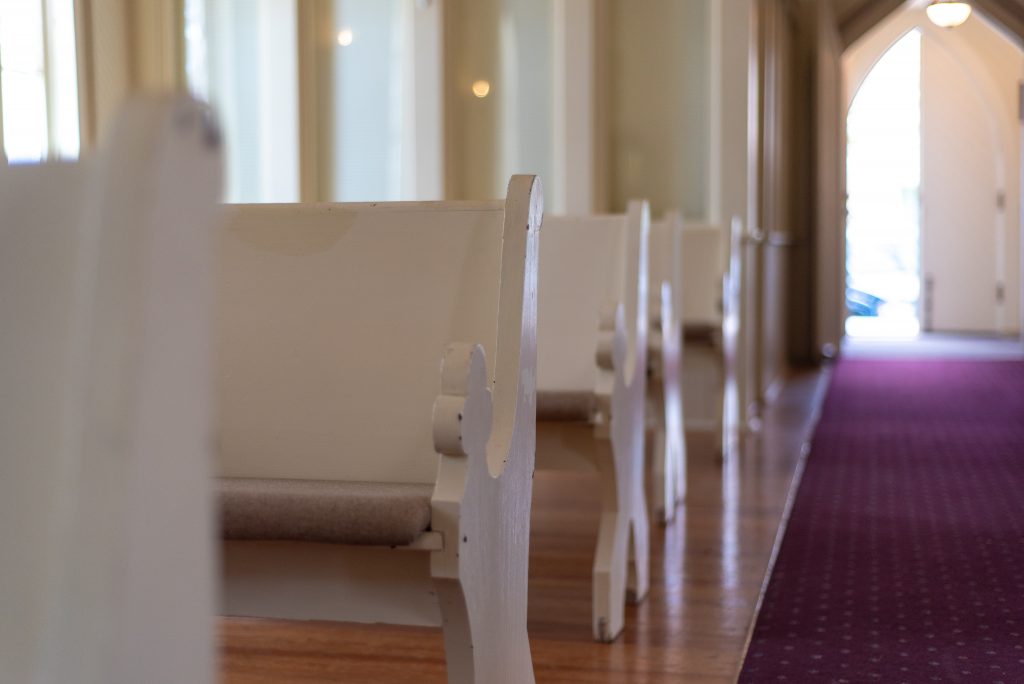

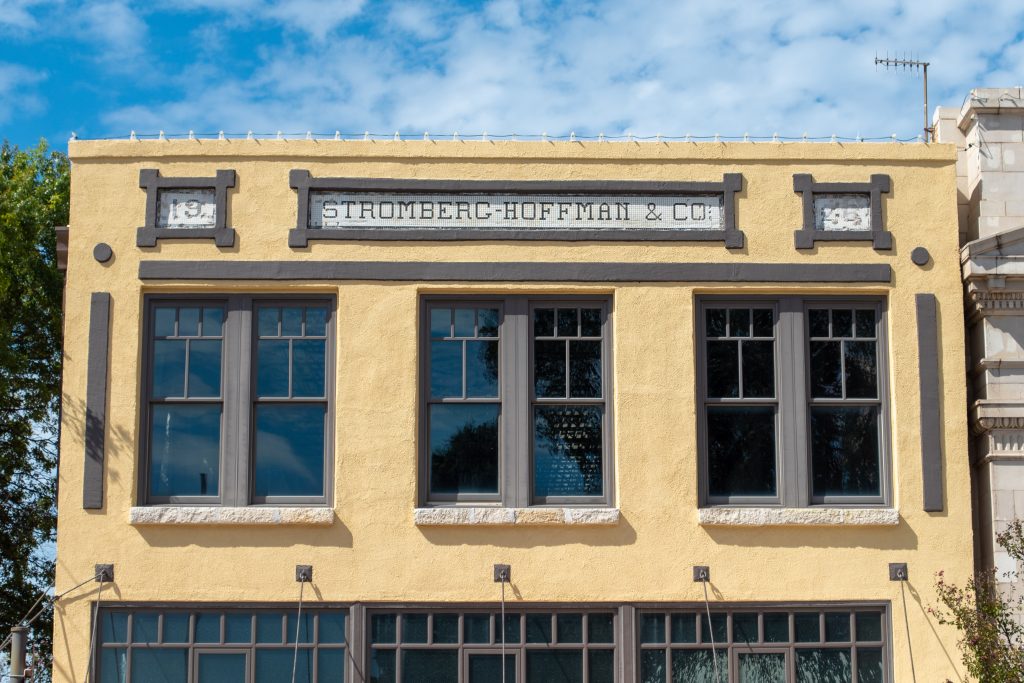
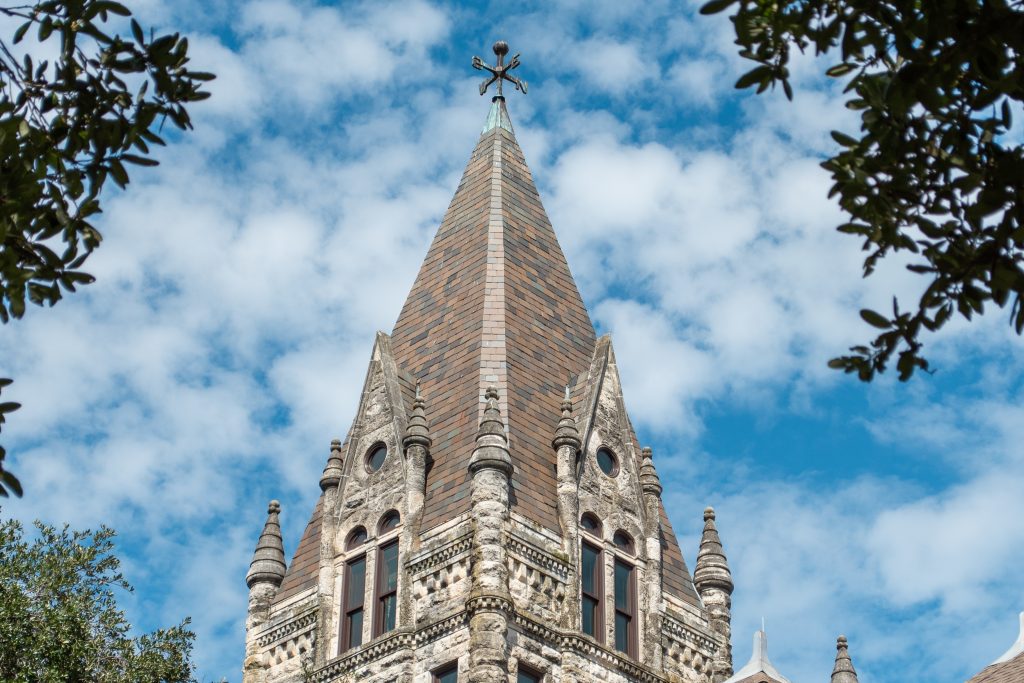
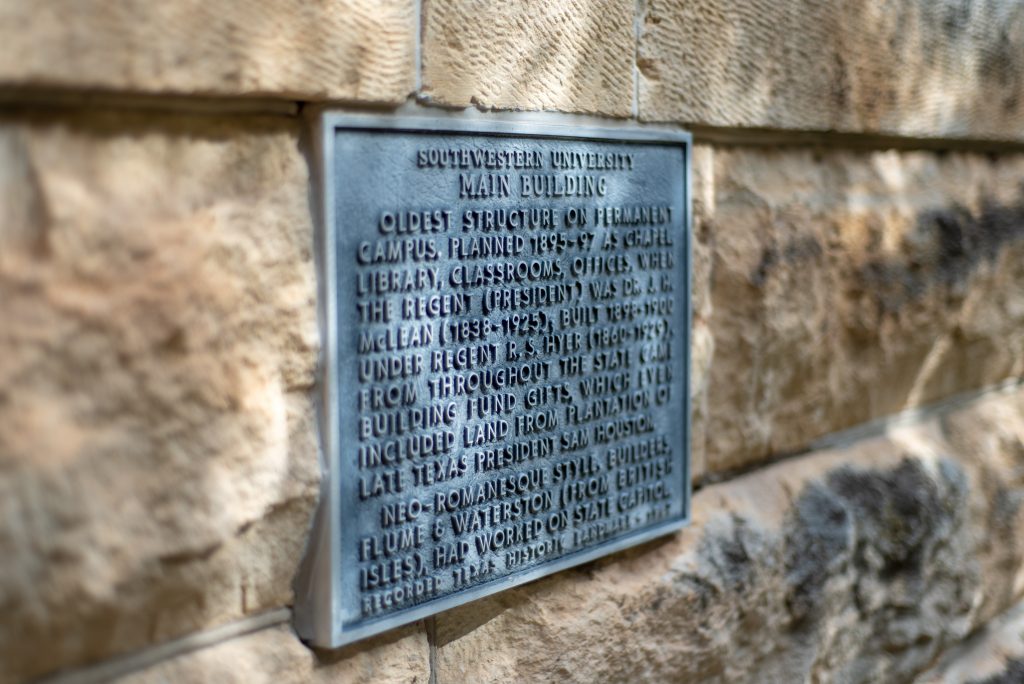
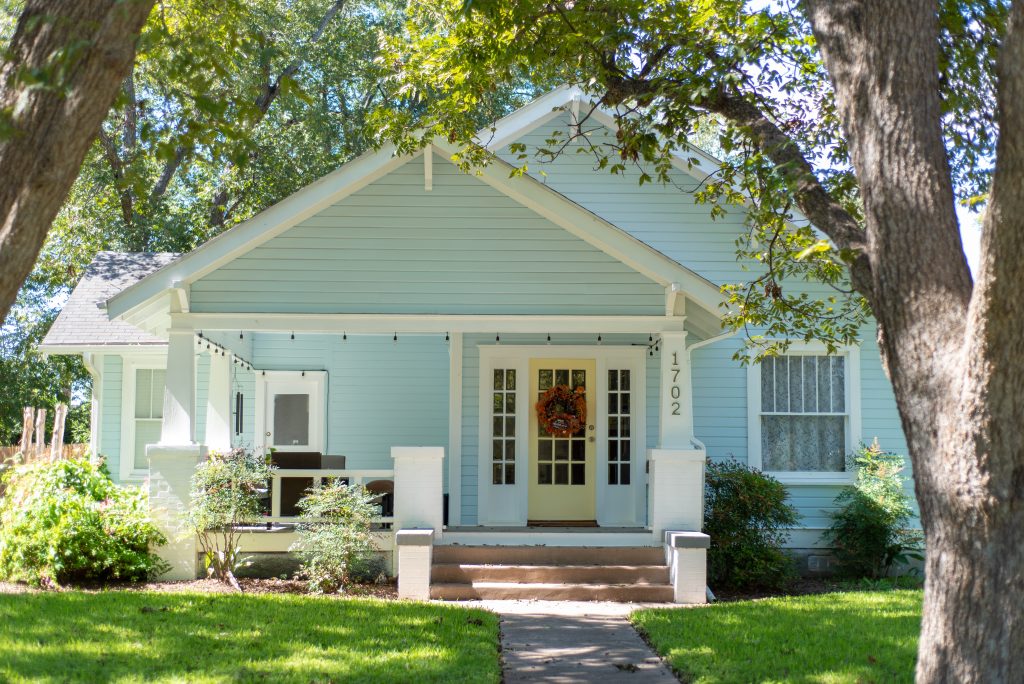


Nice job! Thanks for speaking out. Very well articulated. We live right across University from Southwestern and consider you our good neighbors. We appreciate you taking an interest in Georgetown and voicing what most of us feel; that turning over the preservation of our historic town to the city council is a grave mistake. Keep pressuring them.